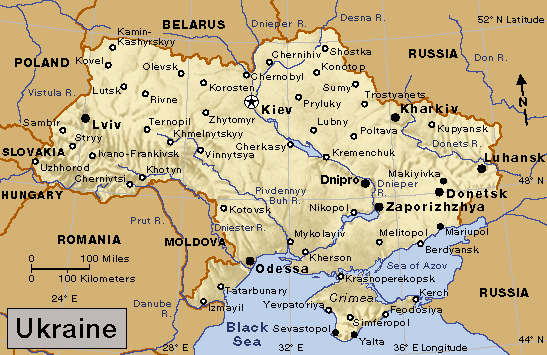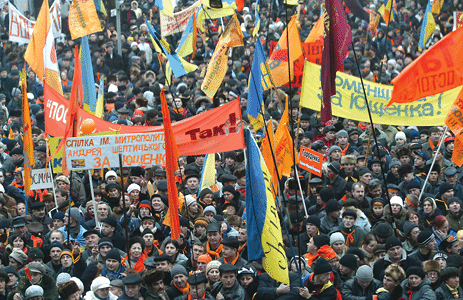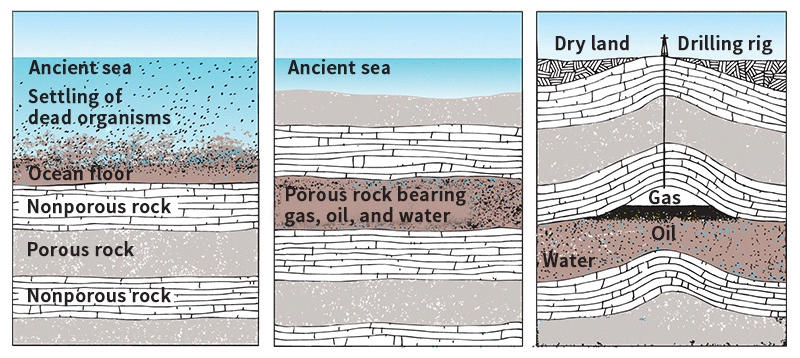Ukraine Faces Another Crisis
Tuesday, April 8th, 2014April 8, 2014
Authorities in Ukraine announced today that Ukrainian forces have wrenched control of a regional administration building in the eastern city of Kharkiv from pro-Russian separatists. They stated that government buildings in Luhansk and Donetsk will be freed shortly as well. The separatists took over the buildings in the three cities yesterday. In Donetsk, they proclaimed the city’s independence as well as their intention to hold a referendum on secession. The separatists asked Russia to be ready to deploy “peacekeeping troops” in the city. (Russia currently has thousands of Russian troops massed along its border with eastern Ukraine.)

Pro-Russian separatists seized government buildings in the eastern Ukrainian cities of Donetsk, Kharkiv, and Luhansk on April 7, igniting another crisis for the interim government in Kiev. (World Book map; map data © MapQuest.com, Inc.)
Experts on the crisis in Ukraine describe the current situation as a scenario similar to the one that played out in March when Russia annexed the peninsula of Crimea following a referendum of questionable legitimacy. In the Ukrainian capital, Kiev, interim Prime Minister Arseniy Yatsenyuk characterized the events in the east as scripted in Russia: “An anti-Ukrainian plan is being put into operation … under which foreign troops will cross the border and seize the territory of the country,” Yatsenyuk told his Cabinet. “We will not allow this.”
Although the government of Russian President Vladimir Putin has stated it has no intention of invading Ukraine, it claims to have the right to defend ethnic Russians there and warns Ukraine to stop any military preparations. In a statement issued by the Russian foreign ministry, Putin’s government noted that such preparations risk triggering a civil war.
Last week, Russia raised the price of the natural gas it supplies to Ukraine to $485 per 1,000 cubic meters, the second hike in two days. Ukraine owes Russia billions of dollars for natural gas. The deadline for Ukraine to settle the outstanding balance, in full, came and went yesterday. The interim government in Ukraine is under no illusion, knowing that Russia could do what it did in 2009: cut off Ukraine’s supply of gasoline and natural gas—a move that would cripple the country.
For additional information on the Ukrainian revolution, search Ukraine articles under Archived Stories.
Additional World Book article:
- Russia in the Post-Soviet World (a special report)





